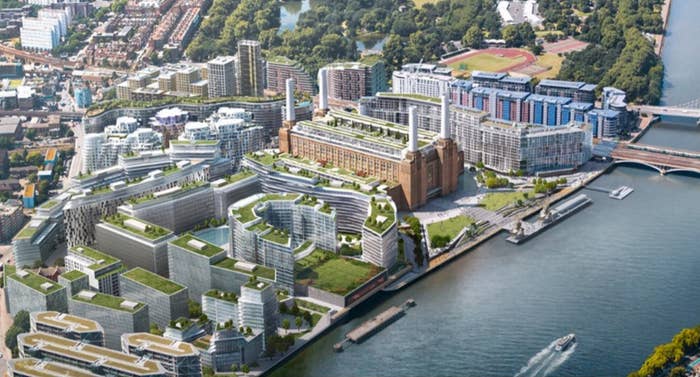
Apple is to move 1,400 of its UK-based staff into new office space at Battersea Power Station, the famous industrial-era building on the south bank of the Thames currently undergoing a multi-billion pound redevelopment.
The company will move staff from eight offices dotted around London into a specially built six-floor complex inside the main boiler house, which is claimed to be the largest brick structure in Europe, by 2021.
The Grade II-listed building has stood derelict for 33 years. Work began on the building in 1929 and it was finally decommissioned in 1983. Several sustained and detailed attempts to redevelop the site failed to get off the ground.
Apple will take about 40% of site's office capacity in what is thought to be one of the biggest single office lettings in the capital in the last 20 years.
The 8.5 million square foot Battersea Power Station project – funded largely by Malaysian investors – will see hundreds of new flats built around the main power station building alongside office space, shops, and restaurants.
"We are looking forward to opening Apple’s new London campus at the Battersea Power Station in 2021," and Apple spokesperson said in a statement.
"1,400 Apple employees from existing offices around London will relocate to this magnificent new development at one of London’s best known landmarks. It’s a great opportunity to have our entire team working and collaborating in one location while supporting the renovation of a neighbourhood rich with history."
Sadiq Khan, the mayor of London, said: "I am delighted that Apple is moving into Battersea Power Station, helping to generate new jobs and economic prosperity for Londoners. It is a further sign that London is open to the biggest brands in the world and the leading city for trade and investment."
Battersea is the centre of intense levels of residential construction, mostly funded by foreign investors, including the vast Nine Elms development, which will see 16,000 homes and a new crop of skyscrapers dot the skyline by 2020.
